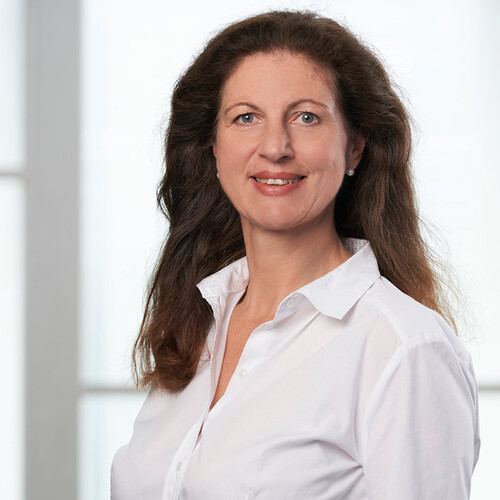The rapid transformation processes in the mobility sector require companies to rethink and adapt to new technologies and sustainable ways of working. With the certificate program CAS "Mobility Systems and Software Engineering", we want to help companies successfully manage this change by equipping their employees with the latest knowledge and skills.
Therefore, the curriculum covers a variety of decisive topics specifically tailored to the needs of the mobility industry. From Fundamentals of Systems Engineering, Sustainable Engineering and Software Engineering to Modeling and Simulation, Control Systems Development, Electronic Systems Synthesis and Model Based System Engineering, each training provides valuable abilities as well as practical methods and tools that are essential in today's fast-paced industry. The centerpiece of the certificate course is the understanding that efficient systems and software engineering are the key for actively shaping and successfully managing the transformation processes.
Take the opportunity to be at the forefront of innovation. Register your employees for the CAS "Mobility Systems and Software Engineering" certificate program today and invest in a successful future in the mobility sector.
Motivation
- Systems Perspective: Enhancing skills through integrative, systemic understanding
- Quick Wins: Shorter training units accelerate know-how integration into the company
- Further Success: Empower change by nurturing sustainability for a thriving tomorrow
- Mobility Hub: Access to cutting edge mobility research in Karlsruhe and at the KIT
Key Facts
- General Information
- Language: English
- Admission requirements: First academic degree (e.g. Bachelor, Master or Diploma), at least 1-2 years work experience, English language profiency.
- Location: HECTOR School | Schlossplatz 19, 76131 Karlsruhe
- Costs: 7,000€ (seven thousand) for the entire CAS program
- Certificate of Advanced Studies (CAS)
- Scope of 10 ECTS points
- Postgraduate individual Certificate, including Online Exam
- Step 1: April 22nd - 25th, 2024
- Step 2: September 23rd - 27th, 2024
- Step 3: November 4th - 8th, 2024
Academic Requirements
Academic Requirements
- University degree in a relevant subject
- Work experience (at least 1-2 years)
- English proficiency
Detailed description of all admission requirements
Program Director
 |
Prof. Dr.-Ing. Eric Sax
|
Structure of the CAS Pilot Project
A Certificate of Advanced Studies (CAS) contains 10 ECTS points and consists of 7 Trainings. These specially selected Trainings are designed to generate a basic understanding in systems engineering.
Whether you want to deepen your knowledge, expand your skills or prepare for new professional challenges, the Systems Engineering Qualification is the key to a profound education in this exciting field.
Training Dates
- Step 1: April 22nd - 25th, 2024
- Fundamentals of Systems Engineering
- Case Study
- Step 2: September 23rd - 27th, 2024
- Sustainable Engineering
- Control Systems Development
- Modeling and Simulation
- Step 3: November 4th - 8th, 2024
- Electronic Systems Synthesis
- Model Based System Engineering (Case Study)
- Software Engineering
The Trainings take place at the HECTOR School | Schlossplatz 19, 76131 Karlsruhe

Ms. Martina Waldner
Senior Program Consultant HECTOR School
info∂hectorschool com
+49 721 608 47019
Fundamentals of Systems Engineering
Sustainable Engineering
- Date: Step 2 | September 23rd - 27th, 2024
- Location: HECTOR School | Schlossplatz 19, 76131 Karlsruhe
- Content:
- Fundamentals and concepts of sustainable development
- Evaluation of products and processes under the aspect of sustainability
- Technical features and customer appeal interact with sustainability aspects
Control Systems Development
Modeling and Simulation
Electronic Systems Synthesis
Model Based System Engineering (Case Study)
- Date: Step 3 | November 4th - 8th, 2024
- Location: HECTOR School | Schlossplatz 19, 76131 Karlsruhe
- Content:
- Model Based Systems Engineering Framework (What is a MBSE Framework and why is it needed)
- Case Study (information collection, problem modelling, solution modelling using the introduced framework)
Software Engineering
- Date: Step 3 | November 4th - 8th, 2024
- Location: HECTOR School | Schlossplatz 19, 76131 Karlsruhe
- Overall Course Objectives:
The course should enable participants to know software engineering concepts beyond programming. In particular, concepts to structure large software systems to enable maintainability and software reuse are discussed. - Content:
Introduction of object oriented modeling as a base for analysis and design for maintainable software systems. This includes the elaboration of traceability and differences between analysis and design models. Software components are introduced as course-grained structure for reuse and as a base for architectural design. In software architecture besides modeling condepts for reuse (styles, patterns reference architectures) are included with an emphasis on clean architecture principles for design well maintainable software. This will be extended with clean code principles to support reuse on an elementary level.




.png)